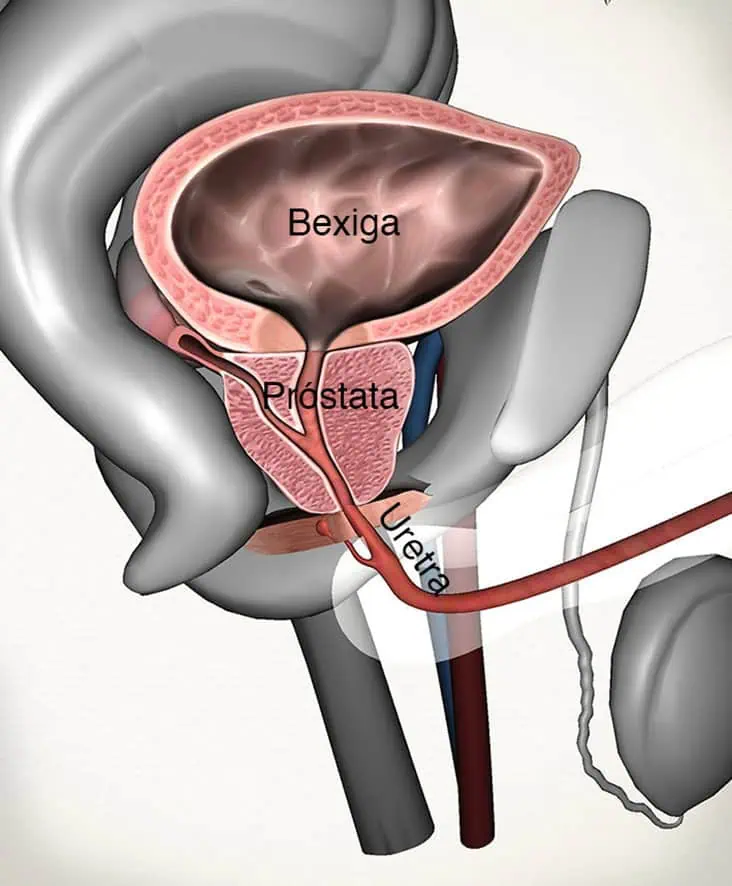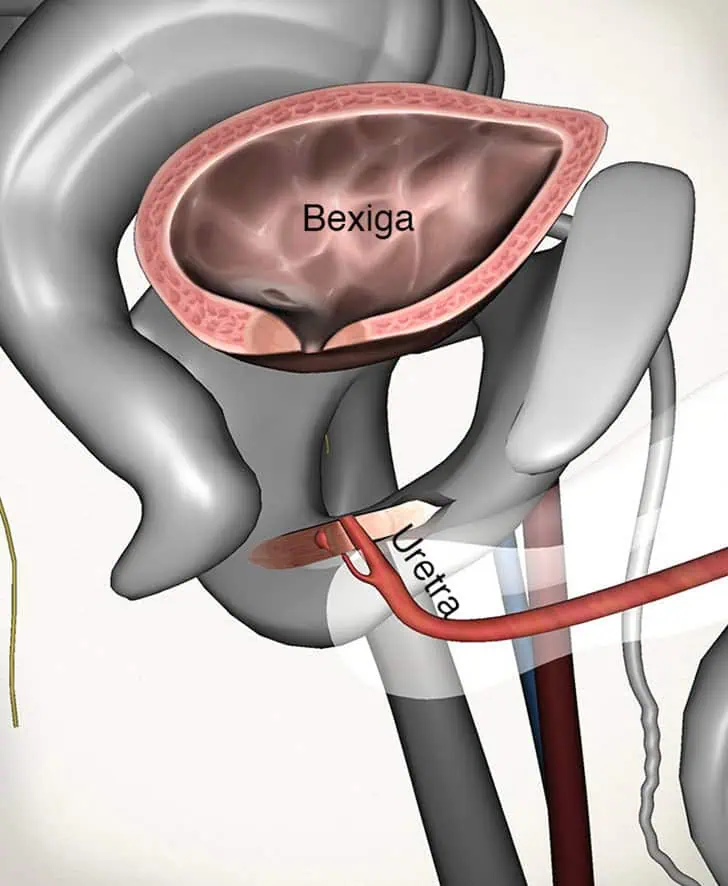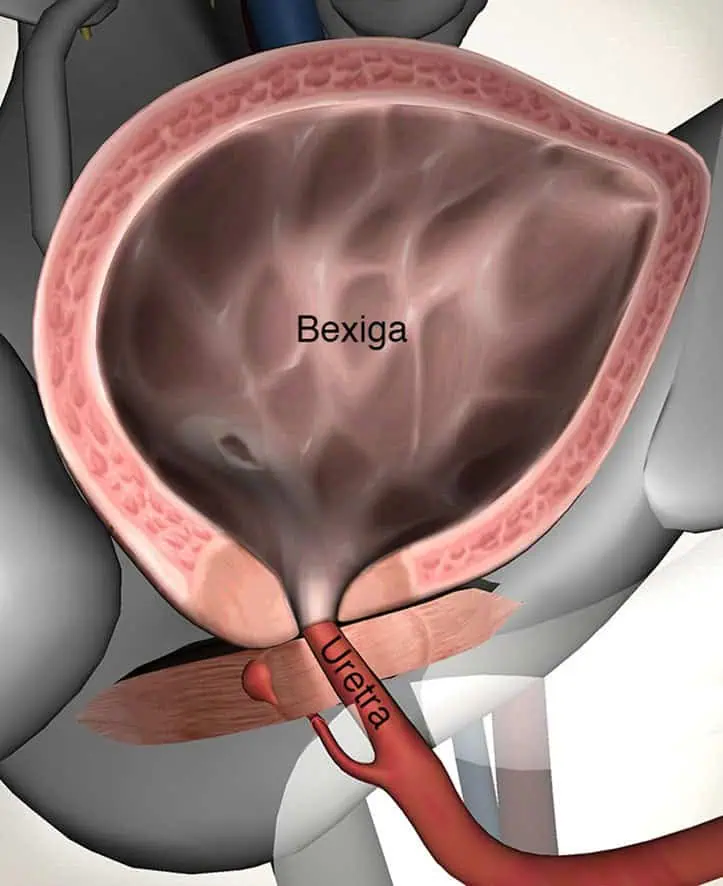Sequelae of Prostate Cancer
The same study found that bladder neck contracture (closure of the bladder outlet channel) was 7.5%. This closure occurs at the point where the bladder outlet joins the urethra (the channel that carries urine to the tip of the penis), after the prostate has been removed, which lies between the two (see Figures).
In another study with longer follow-up (7 years) 26.9% of the patients operated on had some complication related to the surgery (sequelae of prostate cancer)[2].
In an analysis of 3,317 patients operated on with the Da Vinci robot to treat prostate cancer, 9.8% of the patients had some complication after 2 years[3]. In other analyses using the robot, complications ranged from 3-36%[4]
A common complication of prostate cancer treatments is erectile sexual dysfunction (inability to have an erection sufficient for sexual intercourse). Seventy-five percent (75%) of operated patients and 65% of irradiated patients will experience this complication within 5 years.
Urinary incontinence (involuntary loss of urine) affects 15% of patients who have undergone surgery and 4% of patients who have undergone radiotherapy[5].
Treatment of complications
It is usually treated with dilation or (endoscopic) cutting of the narrowed channel. In cases where these options are unsuccessful, reconstructive surgery is required to redo the anastomosis (the junction between the bladder outlet and the channel that carries urine out). The surgery is called urethroplasty. Alternatively, we can use LASER to try to make a new opening, but the treatment must be individualized and discussed with your surgeon. If you suffer from this problem, book an appointment with Dr. Alexandre Miranda now.
2- Urinary incontinence
Treatment can be carried out with a special tape or an artificial sphincter to prevent urine leakage. Each case must be analyzed individually and discussed with the patient. If you suffer from this problem, book an appointment with Dr. Alexandre Miranda now.
3- Erectile dysfunction
There are non-surgical ways to solve this problem or, as a last resort, the insertion of penile prostheses.
Find out now how your erection is doing. Click HERE
If you suffer from any of these problems, book an appointment with Dr. Alexandre Miranda now.
1. Nam, R. K., Cheung, P., Herschorn, S. et al.: Incidence of complications other than urinary incontinence or erectile dysfunction after radical prostatectomy or radiotherapy for prostate cancer: a population-based cohort study. Lancet Oncol, 15: 223, 2014
2. Constantinides, C. A., Tyritzis, S. I., Skolarikos, A. et al.: Short- and long-term complications of open radical prostatectomy according to the Clavien classification system. BJU Int, 103: 336, 2009
3. Agarwal, P. K., Sammon, J., Bhandari, A. et al.: Safety profile of robot-assisted radical prostatectomy: a standardized report of complications in 3317 patients. Eur Urol, 59: 684, 2011
4. Novara, G., Ficarra, V., Rosen, R. C. et al.: Systematic review and meta-analysis of perioperative outcomes and complications after robot-assisted radical prostatectomy. Eur Urol, 62:431, 2012
5. Potosky, A. L., Davis, W. W., Hoffman, R. M. et al.: Five-year outcomes after prostatectomy or radiotherapy for prostate cancer: the prostate cancer outcomes study. J Natl Cancer Inst, 96: 1358, 2004
Tel: + 55 (21) 3183-7395



